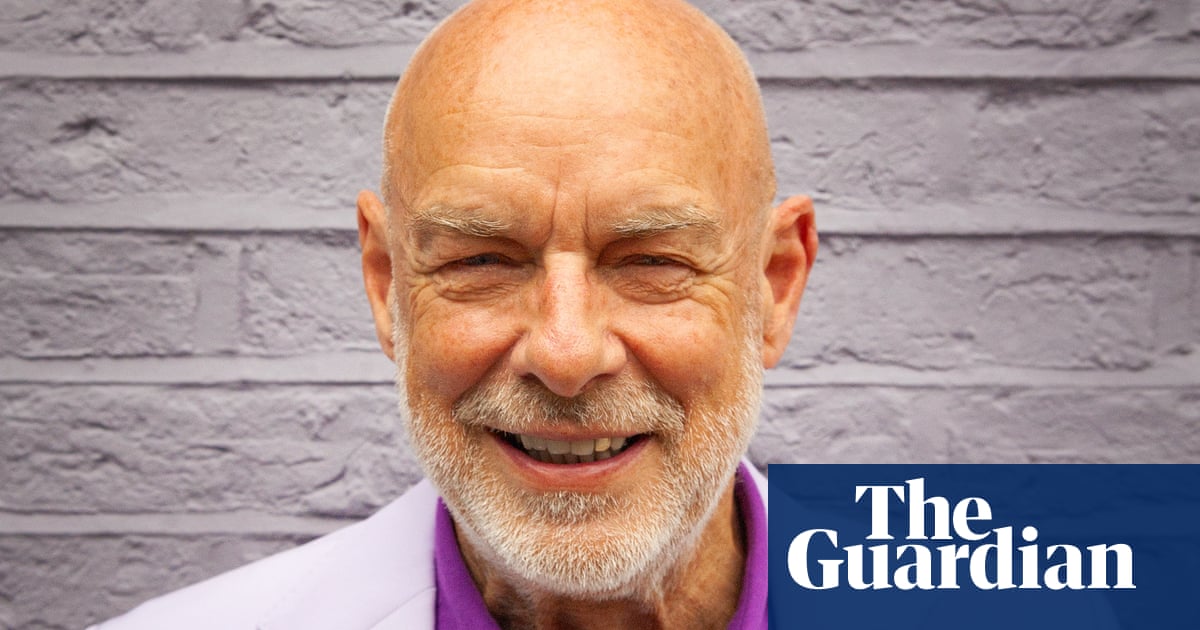Bryan Allen is not the type to blow his own trumpet. Colleagues who knew him only as a software engineer in the Jet Propulsion Laboratory in California, where he worked on the Mars Exploration Rovers, occasionally stumbled upon news of his prior adventures by accident. “They’d say, ‘I’ve known you for five years and I only just found out it was you with the Gossamer and the English Channel,’” says the 72-year-old from his home in Los Osos.
What he is referring to is the part he played in winning two Kremer prizes for human-powered flight, the first two in the award’s history in fact, in lightweight aircraft built by the aeronautical engineer Paul MacCready. In 1977, Allen, an experienced hang-glider, piloted the 70lb (31.75kg) Gossamer Condor over a mile-long, figure-of-eight course in Shafter, California. Two years later, it was his pedal power that got the Gossamer Albatross, which was one pound heavier, across the Channel. Allen moved on to other projects, breaking more records along the way, but the Gossamer story proved to have legs. Or rather, wings.

That became clear when James Erskine, the 50-year-old British co-director of the women-in-football documentary Copa 71, turned up at his home asking to make a film about it. Erskine had been sent a narrative script about the Channel crossing, but when he saw 16mm footage from the period, he knew the idea would work better as a hybrid of drama and documentary. Mixing new interviews and dramatisations with archive material, the result is The Flight of Bryan.
This is a film that acknowledges its own artifice, showing Allen choosing the backdrop for his on-camera interviews and meeting the actors who will play him and his friends. The approach, previously seen in Martha Coolidge’s 1976 Not a Pretty Picture, Bart Layton’s films The Imposter and American Animals and decades of Iranian cinema, helps reproduce the initial disbelief that Erskine felt when he heard about the MacCready projects. “I wanted to play into the absurdity,” says the director, joining the video call. “I wanted people to feel the way I did when I first heard about it, which was: ‘This cannot be real!’” Far from being offended, Allen laughs heartily. “It was absurd,” he agrees.
The hybrid storytelling technique also allows Erskine to plug gaps in the story. “I wanted to have fun with it, be meta, take the piss out of conventional drama-documentary. We’re not trying to con you.” The Flight of Bryan even begins with a jokey disclaimer: “This movie is based on the unreliable memory of its participants.”

Despite having discussed his experiences repeatedly over the years, Allen credits Erskine and his colleagues with winkling new details out of him, including the Genesis song that helped to inspire him as he pedalled over the Channel (the gold-rush anthem Deep in the Motherlode) and tales of his experiences with psychoactive plants. “They prised it out of me!” he says bashfully.
Not that the basic facts of the story aren’t dramatic enough. When conditions over the Channel got particularly rough, for instance, with the expected two-hour journey stretching almost to three, Allen came close to abandoning the flight. “I was diving at the waves and then zooming up. ‘Sorry guys, I can’t do it.’ But it was only when I climbed that I found it was a little smoother up there, so I could carry on. I became determined to use all my energy until there was nothing left except quivering protoplasm. There’s minimal ventilation, it’s a pretty nasty environment, and I’d run out of water. But the cramps don’t matter, the pain doesn’t matter. You’ve got to push through.”
For Erskine, much of the film’s vitality came from keeping Allen on his toes during the shooting process. “We’d be filming a scene and Bryan doesn’t know what’s about to happen. Who’s going to pop up from his past? How will they be dressed? That means we see him re-living and exploring his own journey in the moment.”
That could be disconcerting. “I was in the green room one day, and I heard the voice of my old coach,” Allen recalls. “And I went, ‘Wait a minute. Joe died a couple of years ago.’ And now I can hear him saying, ‘Faster, Bryan, faster!’ The actor playing Joe had studied tapes of him so closely that he had captured all his intonations. Holy crap! It was like suddenly plunging 45 years into the past.”

Talking of plunging, the Icarus myth was much on Erskine’s mind, and not only because of Allen’s story: there are parallels with film-making, too. “We didn’t know if the way we were doing this would work,” he admits. “It could all come crashing down.” For him, The Flight of Bryan ties in with the subjects of his earlier movies –including Billie Holiday and the ice skater John Curry – who were “pioneers with a different way of looking at the world. I think MacCready was a sort of genius.” Allen concurs: “No doubt about it. It was like working with a modern-day Leonardo da Vinci. Quirky yet at the same time brilliant.”
Without making it the subject of the movie, Erskine is careful to acknowledge that many of the people involved in the two missions are neurodivergent. The Gossamer’s chief construction engineer, Bill Watson, remarks that “we all had our problems and we all had our superpowers”. Is that how Allen thinks of his own skill-set? “I’m reluctant to say so because then you can start patting yourself on the back, but yes,” he concedes. “Both the Condor and the Albatross represented human achievement right on the edge of the possible. The only way to win the prize was to go beyond what had previously been done.”
As a self-described “weird kid”, Allen knew how it felt to be under-estimated. “At the time, I didn’t really understand it. It was only decades later that my mom sent me a book about Asperger’s and said, ‘You should read this. It might explain some things.’ I read it and went: ‘Oh. Oh! Oh my gosh! Why didn’t someone give me this 40 years ago?’ Well, it hadn’t been written. So my self-discovery extended well past the pedal-powered flights themselves.”
He is self-diagnosed, he says. “But it allows me to look at my past and go, ‘So that’s why I was so obsessive about building model airplanes. That’s why I went on long bicycle rides while I was in high school.’ My friends would go to a movie at the weekend or hang out, and I’d take these hundred-mile bike rides. I have some insight into what was driving me to do that. It’s a journey of self-exploration that is continuing to this day.”
Now he has a film named after him. “That’s kind of embarrassing,” he cringes. But he approves of the end result. In fact, he’s been telling people that it represents an entirely new category of movie. “It’s a docu-comedy with a mystic twist,” he says, flashing a smile wider than the Channel.
-
The Flight of Bryan is in cinemas from 22 November

.png) 1 month ago
10
1 month ago
10













































